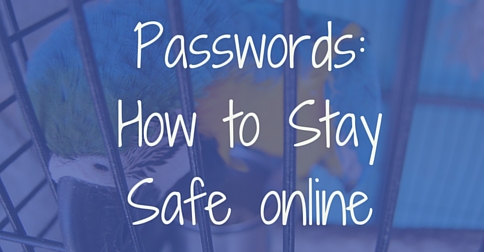
‘Where did I write down that password?… Was it the one with upper case letters or random numbers?’
If the above sounds familiar you aren’t alone. Social media sites, online banking, email accounts, and many other websites require log in details – and therefore passwords. Many of you may be aware of the stories surrounding the infidelity website Ashley Madison, which made the headlines in recent weeks. The thousands of members who held accounts were exposed by hackers, raised many questions about internet security as well as eyebrows.
Even if you aren’t hiding any dark secrets, online security should be taken seriously in order to protect your personal details. However, many people inadvertently take risks. Perhaps you’ve been recycling the same password invented for your old MySpace account when you were 16. Maybe, each time you log in, you refer to the tea-stained, dog-eared scrap of paper on which you wrote your numerous passwords because you can’t remember the many sequences of random numbers, symbols, and upper case letters.

Leaving your Digital Door Unlocked
Creating many strong passwords that can be remembered without the aid of pen and paper can be tricky, but it’s essential to get it right if you are to keep your information both secure and accessible. Surprisingly, many don’t – the most common passwords chosen by Ashley Madison users have recently been revealed, and the results demonstrate a shocking attitude to security – the most common password chosen is ‘123456’. ‘12345’ comes in a close second, and the third most popular – and unbelievable – choice is ‘password.’ One would think adulterers would take more care to erase their digital footprint, but the evidence suggests otherwise.

Locking Yourself out of your Digital Home
At the other end of the spectrum we have the more complex, high-strength passwords, which are so strong that many people write them down. Does H74fjssdk-@@/nd13 resemble your password? Change it, says Britain’s spy agency GCHQ, who have recently warned against using these hard-to-remember passwords. The difficulty involved in trying to remember, they explain, is what ultimately compromises their secrecy – people either eventually swap them for something they can recall, or are forced to write them down in order to remember them, which increases obvious security risks. The agency has also called for a stop to the practice of mandatory password resets and strength meters, both of which they say unnecessarily complicate matters further.

Finding the Balance
So, how does one successfully create multiple high-strength passwords and successfully memorise them? GCHQ offers some useful pointers for personal use and agencies alike:
-Reset passwords only in the event of a possible security breach.
-Choose a random password, but one that is easy to remember over those involving numbers, symbols, and a combination of upper and lower case characters.
-Never share your password with anyone. (This may sound obvious, but as this video proves, it can be done all too easily http://bit.ly/1J9R8L0).
-Restrict admin access as much as possible.
-Ask outsourcers to sign a contract promising to protect passwords and adhere to policies.
If account security is something you’re particularly concerned about you can find out more from Google http://bit.ly/1KpB513 and from Microsoft http://bit.ly/1UVgx7f.
By Georgina Hawkins.